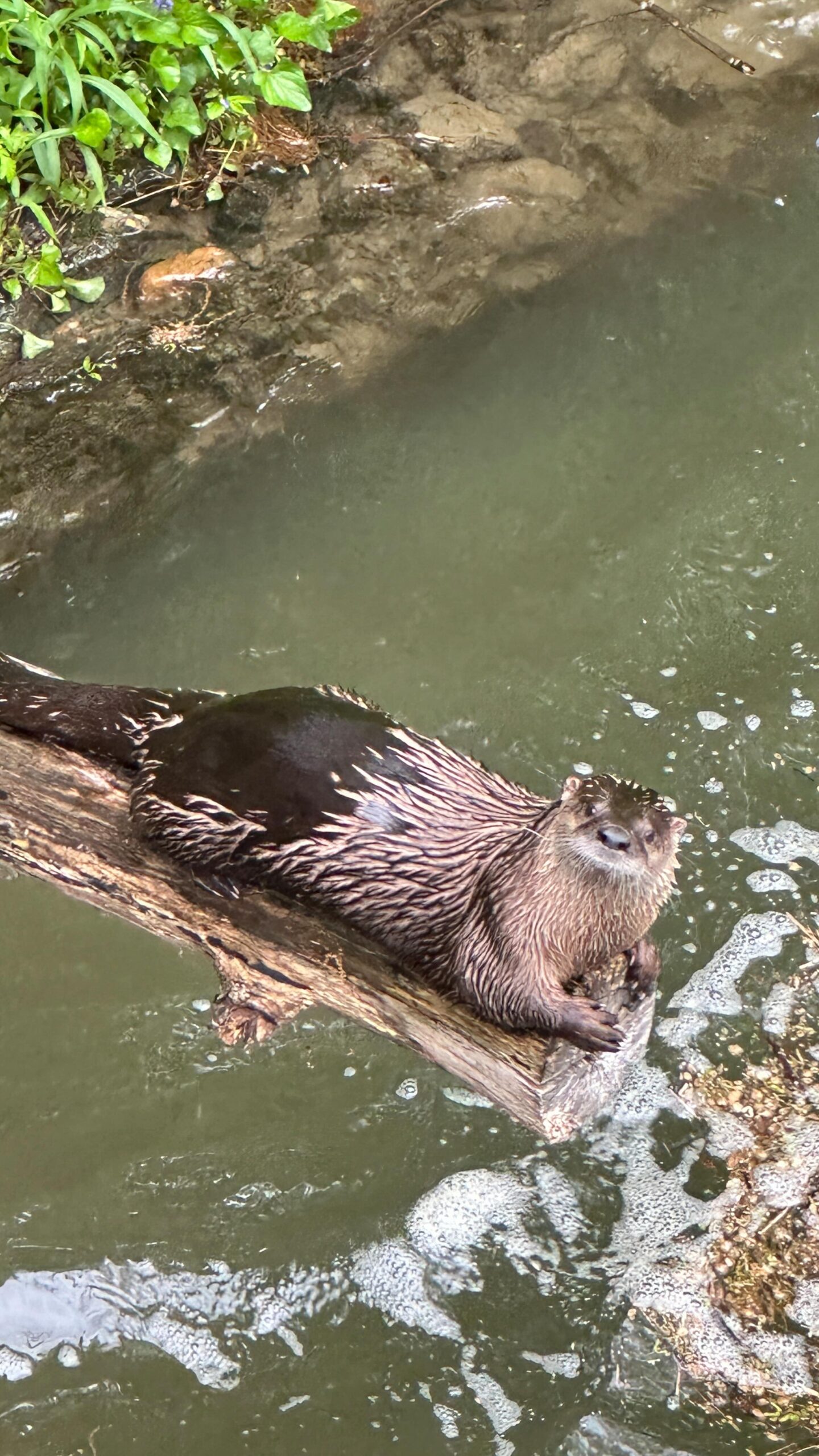- Introduction to Happy World Otter Day and the story of Scooter, the North American River Otter.
- The importance of World Otter Day for conservation and raising awareness about otter species.
- Challenges faced by otters in the wild including habitat loss and pollution.
- The impact of the exotic pet trade on otters, particularly in Southeast Asia.
- The role of zoos and conservation efforts in protecting and educating about otter species.
Two years ago, a North American River Otter named Scooter was found abandoned on a farm. Rescuers took her in, teaching her essential survival skills like swimming and hunting, hoping she could return to the wild. Unfortunately, her early interactions with humans altered her instincts—she came to see people as companions and food providers, complicating any plans for release. Today, Scooter thrives in a zoo, living in a habitat designed to mimic the wild. She serves as an ambassador for her species, highlighting the importance of World Otter Day.
World Otter Day is celebrated to bring attention to the vital role otters play in aquatic ecosystems and to advocate for their conservation. Otters are charismatic, intelligent creatures, and this day is an opportunity to educate the public about their importance and the threats they face. With various species of otters, including sea otters, giant otters, and marine otters, endangered, conserving these animals is crucial.
In the wild, otters face numerous challenges. Oil spills, water pollution, and climate change pose significant threats to their habitats. Urbanization leads to habitat degradation and fragmentation, further endangering their existence. Protecting their natural environments is vital to their survival and requires global awareness and action.
One of the most disturbing threats to otters is the exotic pet trade. Otters are frequently seen as charming companions, especially in Southeast Asia, where the demand has surged. Social media often glamorizes otters as pets, ignoring the complex needs these animals require. This trade not only harms individual otters but also impacts wild populations, as otters are often captured from their natural habitats.
Organizations like the International Otter Survival Fund (IOSF) work tirelessly to protect otters from these and other threats. They aim to influence policy, promote research, and educate communities worldwide about the dangers otters face and the steps needed to conserve them. Engaging with World Otter Day, through social media campaigns or educational programs, plays a vital role in spreading awareness and generating support for these efforts.
Zoos play an essential part in conservation. By providing a safe and near-natural environment, they can protect species that are unable to survive in the wild due to injury or domestication, as seen with Scooter. These institutions also serve as education centers, offering the public a chance to learn about wildlife conservation and the specific needs of otters.
Conservation groups and zoos focus on breeding programs, research, and habitat restoration. Such efforts are critical in preserving otter species for future generations. They provide data necessary for developing strategies to improve conditions for otters in the wild, emphasizing sustainable practices and legislative changes.
Happy World Otter Day serves as a reminder of the delicate balance within our ecosystems and the role each species plays. Otters, as apex predators, maintain the health of aquatic environments. By protecting otters, we protect the broader ecosystems they inhabit. Engaging in the conservation conversation, educating others, and supporting organizations committed to wildlife protection are steps everyone can take to contribute.
It falls upon us to celebrate and preserve the wonder of otters, ensuring these fascinating creatures continue to enrich our world. By highlighting their stories, like Scooter’s, we can inspire change and foster a connection to nature that supports future conservation efforts.
*****
Source Description
Happy World Otter Day from Scooter the North American River Otter.
About two years ago, Scooter was found abandoned on a nearby farm. We rescued her and helped her learn how to swim and hunt for fish, limiting our contact with the goal to release her back to the wild. Unfortunately, because she was so young when found, she became used to people and saw them as friends and a food source – traits that would make her release problematic. But we are happy to have her at the zoo where she is lucky to live in a natural otter habitat and be an ambassador for her species.
World Otter Day is a chance to draw attention to otters, celebrate their unique characteristics, and generate support for their conservation. It’s also a perfect opportunity to reflect on the plight of otters who are cruelly kept as exotic pets.
Many otter species – including the sea otter, the giant otter, and the marine otter – are endangered. They face a number of threats to their survival.
In the wild, otter habitats are impacted by oil spills, water pollution, and climate change. Habitats are also being degraded and fragmented due to urbanisation.
However, one of the biggest threats to otters is the exotic pet trade. They are particularly popular as pets in Southeast Asia – a trend that is further fuelled by social media.
@iosf_otters


